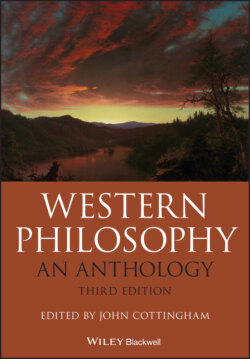Читать книгу Western Philosophy - Группа авторов - Страница 68
Transition to the transcendental deduction of the categories
Оглавление… There are only two conditions under which the knowledge of an object is possible, first intuition, through which it is given, though only as appearance; and second, the concept (corresponding to this intuition) through which an object is thought. It is evident that the first condition, whereby objects can be intuited, does actually lie a priori in the mind as the formal ground of the objects. All appearances necessarily agree with this formal condition of sensibility, since only through it can they appear, that is, be empirically intuited and given. The question now arises whether a priori concepts do not also serve as antecedent conditions, needed if anything can be, not just intuited, but thought of as an object in general. In that case, all empirical knowledge of objects would necessarily conform to such concepts, because only by presupposing them in this way is anything capable of being an object of experience. Now all experience does indeed contain, in addition to the intuition of the senses through which something is given, a concept of an object as thereby given or appearing. Concepts of objects in general thus underlie all empirical knowledge as its a priori conditions. The objective validity of the categories as a priori concepts rests, therefore, on the fact that (so far as the form of thought is concerned) it is only through them that experience becomes possible. They relate of necessity and a priori to the objects of experience, since only by means of them can any object of experience be thought.
